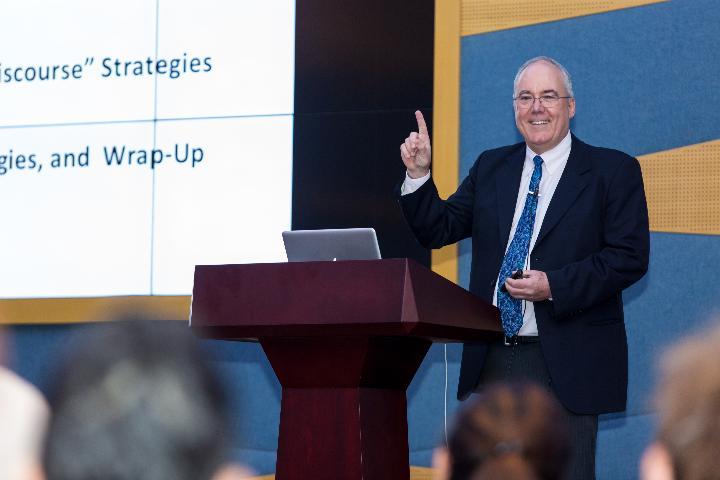
UAE amongst the top GCC countries focused on educational training for children with Dyslexia
Dr Charles Haynes, a Harvard professor and industry expert from the United States, has praised the Dubai education sector, describing the city’s teachers as “highly committed, dedicated and regionally advanced” when it comes to working with students with Dyslexia.
Professor Haynes was speaking at a free full-day workshop titled “Narrative and Expository Strategies for Scaffolding Oral Expressions and Writing”, organized by Lexicon Reading Centre, the premier UAE-based institute for diagnosing and teaching students with dyslexia and related specific learning difficulties.
''There are clearly very systematic and structured teaching approaches in place to help dyslexic students and students facing difficulties in language learning reach their full potential,” said Professor Haynes.
The workshop in Dubai featured lectures, discussions and problem-solving activities with the goal of exploring word, sentence and discourse level strategies for supporting oral and written comprehension and expression. Other topics discussed included systematic methods to use when leveraging key language learning skills when speaking, listening, writing and reading to enhance comprehension of narrative and expository text. It was a hands-on and practical-oriented session, with Dr Haynes asking audience members to perform a number of handwritten tasks whilst engaging in dialogue with him as he spoke.
Professor Haynes discussed at length the importance of word-level comprehension before proceeding to sentence level and then discourse level understanding.
“Good teaching provides scaffolding, or support, to working memory inside the human brain as students learn inside the classroom about sentence formation,” he explained. “Working memory is vital to storing word meanings and sentence formation.''
Professor Haynes has extensive experience both inside and outside the United States. Throughout the late 1970s till early 1990s, he served as a teacher and director of speech-language services at Landmark Elementary and Middle Schools in his native Boston, where he developed the United States’ first language-based curriculum geared to children with dyslexia and language learning difficulties.
From 1997 till the present day, he has overseen research operations in Brazil, Japan, Singapore and the Czech Republic branches of the International Dyslexic Association. In the Middle East, he has overseen teaching strategies in Kuwait and Saudi Arabia in which he applied his experience to Arabic language teaching methods. An Arabic language documentary has also been produced on this particular topic.
“This was a wonderful opportunity for our guests to learn from one of the industry’s leading experts,” said Rudolf Stocking,Clinical Director of Lexicon Reading Center.
“It was practical and interactive, providing people with inspiration and new tools to help with their teaching. Having experts like Professor Haynes here offers unique insights and world-class practices that will only help to improve the teaching methods in the UAE and across the region.”
Professor Haynes is a Boston-based clinical supervisor at the MGH Institute of Health Professions. He is an alumna of the Harvard Graduate School of Education from which he received his doctorate in Reading Language and Learning Disabilities and he holds a MS in Speech-Language Pathology. Haynes possesses over 30 experience in handling dyslexic adolescents and has authored over 40 publications on applied and theoretical topics related to language learning development and disabilities.
He is the 2014 recipient of the International Dyslexia Association presented alongside the Margaret Byrd Rawson Lifetime Achievement Award for his contributions to the field and for his support of people with dyslexia and related language learning difficulties.
The workshop took place at Almas Tower Conference Centre in JLT and was well-received by all attendees. The educators welcomed the opportunity to learn from a world-class industry expert and plan to incorporate what they learned from the practical strategies Professor Haynes presented.





























